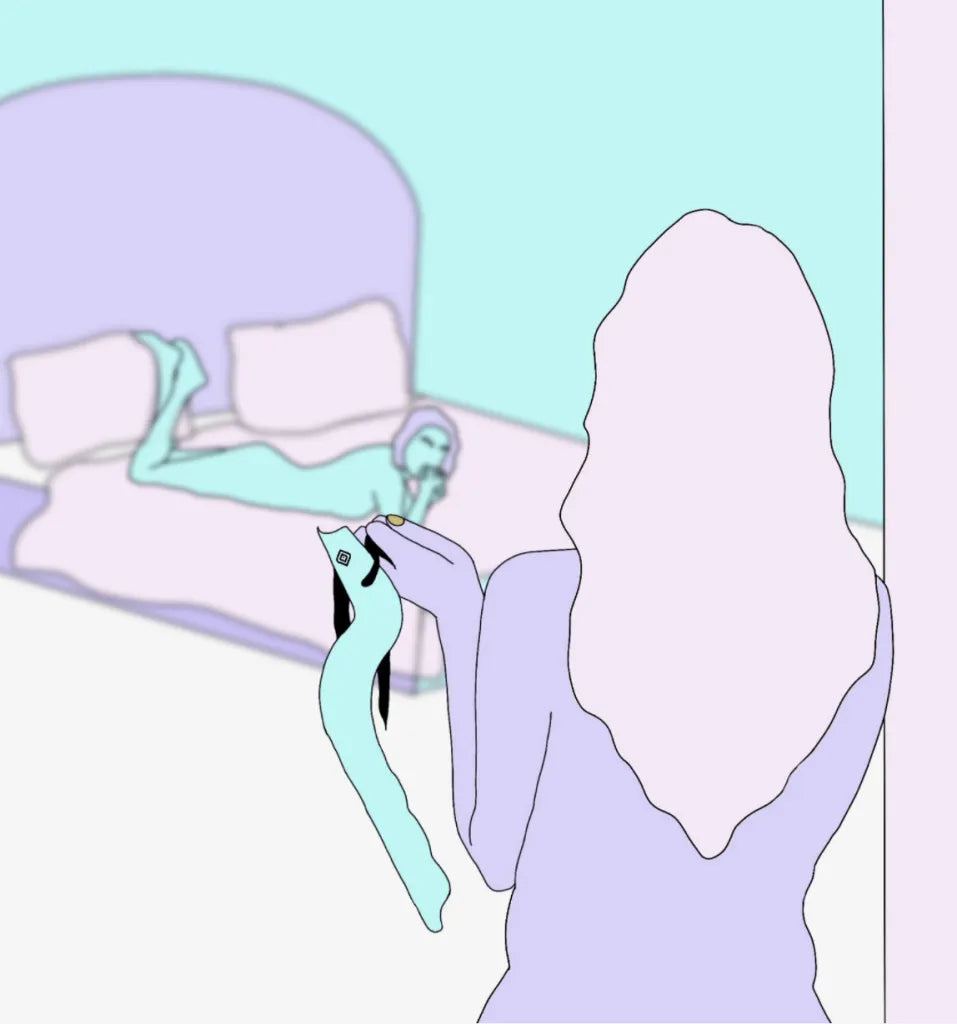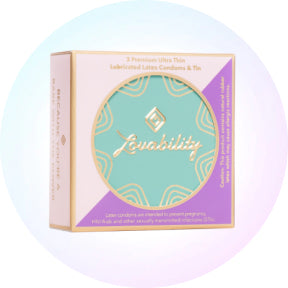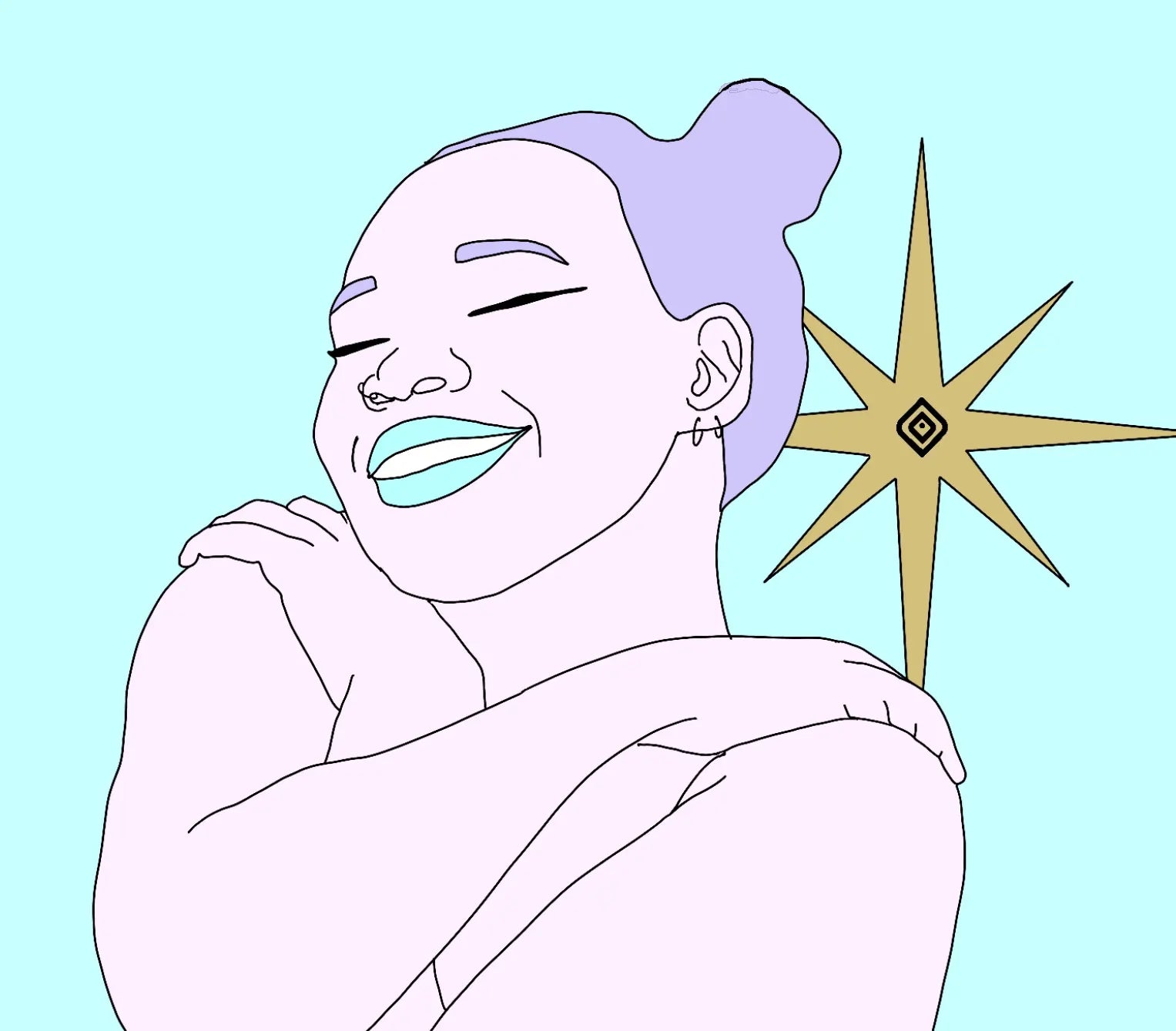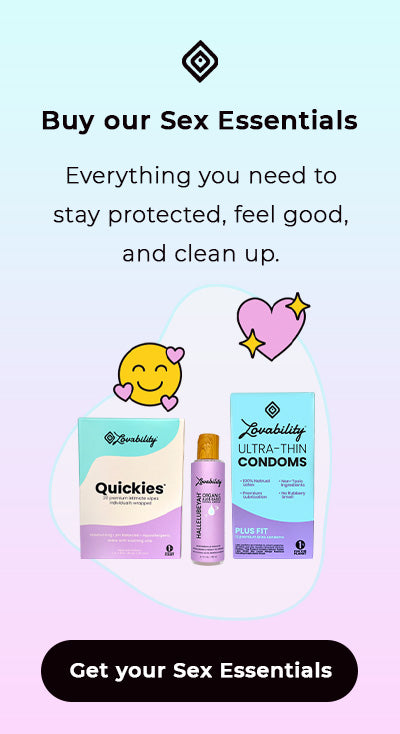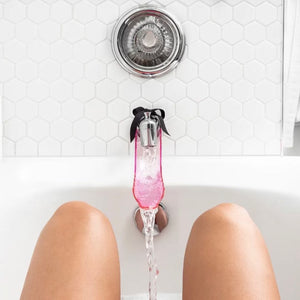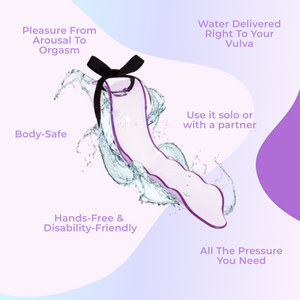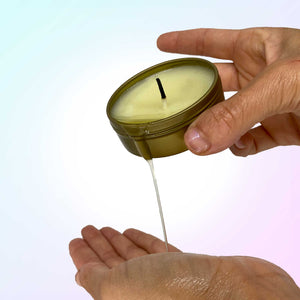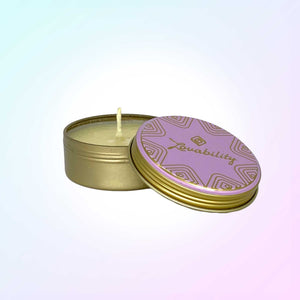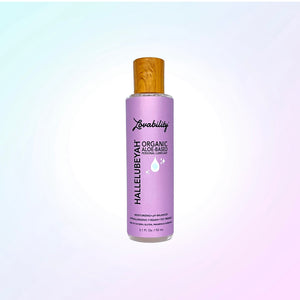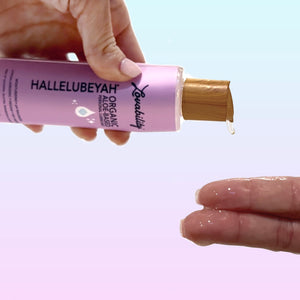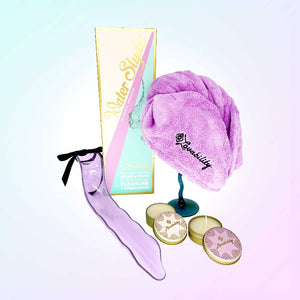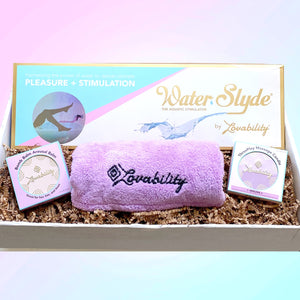"Want harder erections?"
"#bigdickclub."
"HOW TO BANG FOR MUTI-ROUNDS."
These are all real-life advertisements and content for male sexual health products. And yes—that last one displayed its spelling errors in all caps.
There seem to be very few (possibly none) limitations on what brands can market to men on social media platforms. Making sure they can get and maintain an erection overrides basically any guidelines on suggestive content. Female pleasure, on the other hand, has a penchant for “breaking the rules.”
Surprised? You shouldn't be. Just ask us. It's happened more times than we can count.

We've been denied loans, suspended from QuickBooks, refused by investors, and rejected by marketing and ad agencies due to being an adult company. Despite the fact that our products (and the language we use to promote them) are OB/GYN-backed and far from X-rated, the mere mention of female pleasure often results in shut doors. Both in person and online.
"Even though I read through all the social media guidelines and make things incredibly benign, I still get punished," says Lovability CEO, WaterSlyde Inventor, and Resident Pleasure Queen Maureen Pollack. "Once, I was permanently banned from TikTok and had my account taken down for a video of the WaterSlyde that showed the stream of water hitting a flower.
"There wasn't even a person in it, and I was banned for adult nudity and sexuality."
In this case, Pollack was able to reinstate her account—but only after multiple appeals and documentation sent to TikTok's legal department. She had to send screenshots of major men's sexual health brands using words like "erect," "hard," "penis," and "masturbate" to demonstrate the hypocrisy in how women's pleasure products can and cannot be marketed.
To give you an idea, here are a few words you're not allowed to use:
💧 Wet
💧 Clitoris
💧 Vagina
💧 Aroused
💧 Masturbate
💧 Orgasm
And that's just the copy! The content itself is also under major scrutiny. As you can see in the screenshots below, male-focused brands are allowed to demonstrate their products in the same manner that resulted in Lovability's account being banned: using fruits and vegetables.
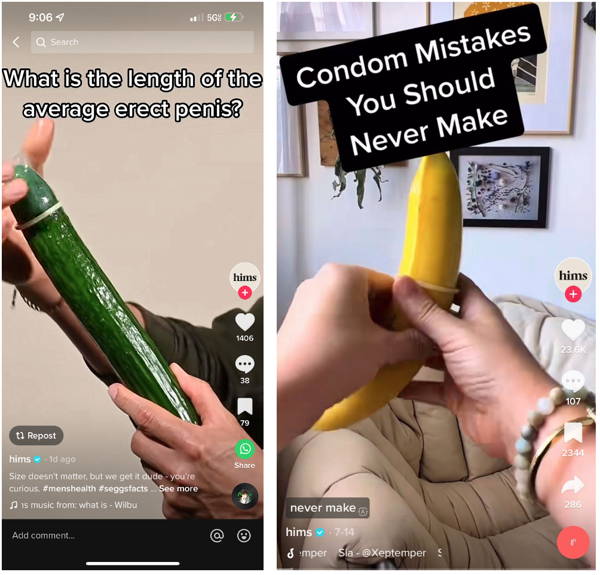
Just to really paint the picture of the blatant sexism occurring in the sexual health marketing space, Lovability also posted a video about condoms. In it, Pollack displays a condom that's blown up, following a message about what to do if your partner claims he's "too big." That video—not the one above that shows a cucumber basically getting a handjob—violated TikTok's community guidelines.
Don't even get us started on the hotdogs being shoved inside #toysformen.
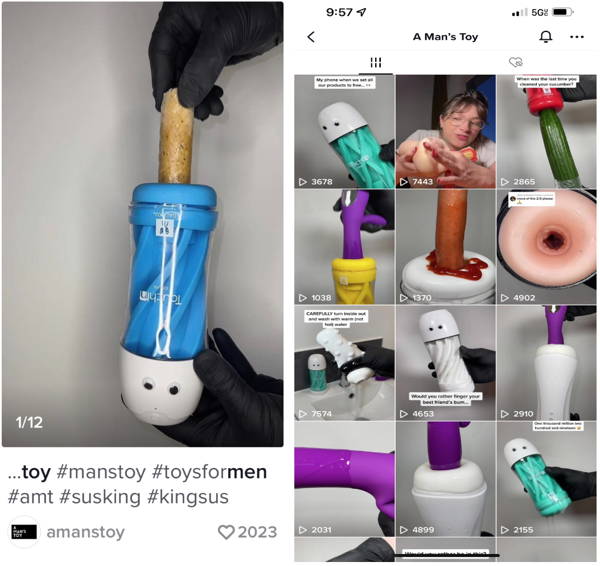
These incidents are just a handful of the hypocrisy female pleasure companies experience online. And they're also the only incidents we're notified about. There's another practice of banning that occurs without any warning at all.
Shadowbanning
Stealth banning, ghost banning, comment ghosting, hell banning—whatever cute name you want to call it, the harsh reality is that most brands promoting female pleasure find themselves in a social media abyss thanks to a practice known as shadowbanning.

Shadowbanning is when social media platforms make an account and its content nearly invisible to its followers without explicitly notifying the poster. Unlike an outright ban or takedown, the platform quietly limits posts from reaching their intended audiences to curtail "problematic" behavior and language.
If it’s happening to your account, you’ll likely notice a drop in engagement or some lost followers. It’s subtle enough that the owner of the account may not know it's happening, but it's impactful enough to slow down brand growth and sales.
Because there’s no alert from the platform, there’s also no method to appeal to a shadowban. You can reach out to support, but they tend to be less-than-helpful as social media companies deny this practice and claim that these “so-called shadowbans” are just technical glitches.
So your only two choices are to wait it out and hope it’s eventually lifted or start a new account and cross your fingers that it doesn’t happen again.

This practice disproportionately affects female pleasure companies and other sex education content creators, who claim that platforms hide their posts from hashtags and feeds and even take away their ability to post comments. But many users—including us—feel they have their own experiences to prove otherwise.
Pollack says that pretty much anytime a Lovability video goes viral on TikTok, the account LOSES followers. Which should be the opposite, right?
"I've posted videos that are very similar to other ones that I know do well," she says. "And my views go from 5,000 down to 100. I've also had people message me and say, 'I don't understand. I follow you, and I don't see you anymore in my feed. I have to specifically look for you.'
"I've even had people tell me, 'I don't know what happened. It said that I'm not following you anymore, and I've never unfollowed you.' And that's come from multiple people."
Sadly, it’s not just us. In an interview with Refinery29 about why it's legal to advertise condoms but not vibrators, Unbound Co-founder and CEO Polly Rodriguez said that all of her ads promoting her women’s sexual wellness company were deemed “too sexual” by every single social media platform.

“For men to procreate, they need to orgasm,” Rodriguez says in the interview. “But for women, that's not necessarily the case. And so I think because that is a requirement for men, a lot of the time, products that are associated with male sexuality can fly under the radar under this guise of family planning. Whereas for women, family planning is really just about fertility and pregnancy, and having babies. Female pleasure and the female orgasm fall into no man's land.”
It's a no man’s land we know all too well—and it's time for it to change.
How You Can Help
Thankfully, there are a lot of awesome folks and organizations out there fighting to keep female pleasure creators and brands from getting the shadowban treatment. If you want to help, here are a few ways you can get involved:
💧 Sign Biird's petition to de-stigmatize self-pleasure and sex education content online.
💧 Support organizations like Brook that are actively providing free sexual education resources despite social media restrictions.
💧 Be active in your own online presence by reposting content related to female pleasure, self-care, and body positivity (in whatever way, shape, or form you're comfortable with).
The BEST way you can help keep our content out of the shadows is to continue supporting the online work your favorite brands are doing.
"One thing I always say to people when I end my live videos is, 'If you enjoy my content and you want to help support, I know it sounds cheesy, but please make sure that you comment and engage because it does help our algorithm. It shows other people in the world that there are people out there that support it.'
"This goes for any content creator that you see on any platform. If you enjoy something that you're watching, it doesn't cost you anything to hit the heart button. And it means everything to us content creators to see that you love it."

Don't worry. A little thing like a shadowban isn't slowing Lovability or Pollack down anytime soon. She says that it's unfair obstacles like this that fuel her to keep fighting for a more balanced playing field.
"Female and sexual health is overshadowed because of this unjust hypocrisy. Besides creating products that are for women by women, it's this right here that makes it all worth it."
About The Author
Emily Blackwood is a freelance journalist committed to answering the plaguing question of what makes us truly happy. Turns out, it's a lot. Her work has been published in SELF, HuffPost, and YourTango. You can learn more here.
___________________________________________________
Medical Disclaimer: The information provided here is intended for educational and informative purposes only and is not intended to serve as medical or professional advice. If you have any concerns or questions about your health, you should always consult with a physician or other health-care professional.
More Articles You Might Love
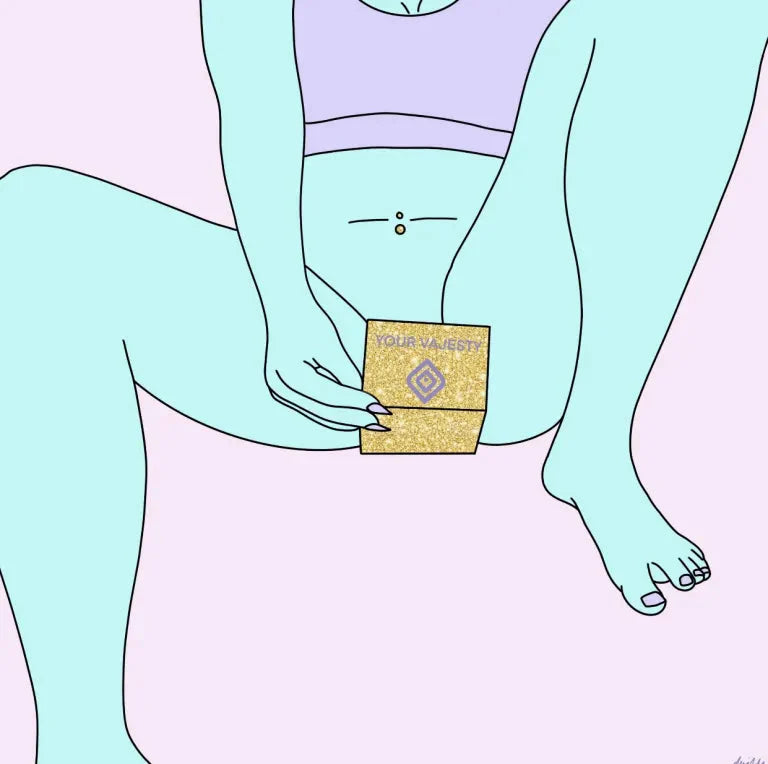
Get To Know Your Vulva
